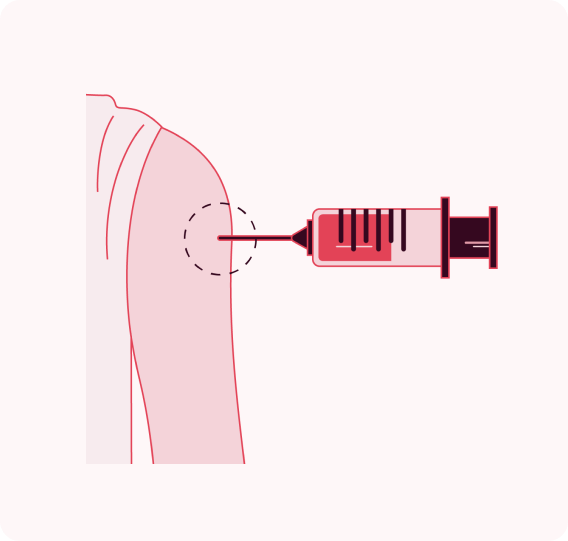Can be up to 99% effective if you have injections on time. This is similar to the progesterone naturally produced in ovaries and works to prevent pregnancy. Often called the “depo” or the “jab”.

The injection contains the hormone progesterone and works in three ways to prevent pregnancy from occurring. Depo Provera is the funded injection available in New Zealand.
The hormone in the injection is similar to progesterone, which is one of the two main hormones made by the ovaries during a normal cycle.
The body senses the presence of the hormone so that hormone production is ‘switched off’. Because of this, the ovaries will not release an egg and this is how pregnancy is prevented. This is very similar to how the Pill works. Depo Provera is also sometimes used in the treatment of endometriosis.
The injection works in three ways:
If you are having Depo Provera for the first time, your first injection should be given when risk of pregnancy is excluded.
The injection is commonly given in the upper arm or buttock. No one can tell you are on the injection and there is nothing more you need to do before having sex to prevent pregnancy.


There are loads of things about the injection that are good for your body as well as your sex life.
Everyone worries about negative side effects, but for many people, they’re not a problem.
Most people without serious health issues can use Depo Provera. Many who use other contraception can too. It might work for those who can’t take the combined pill for health reasons.
Depo Provera can be used by most wāhine/women+ who do not have any serious medical problems and by many who use other forms of contraception. It may also be suitable for wāhine/women+ who cannot take the combined pill for medical reasons.
An appointment will typically include:
You can have the injection at any time in your menstrual cycle if you are certain you are not pregnant. If you’re given the injection during the first five days of your period you will be protected against pregnancy immediately.
If you have the injection on any other day of your cycle you will not be protected for the first seven days, so you will need to use another method of contraception, like condoms. You may also be required to take a pregnancy test after the injection has been given.
Follow-up injections must be given on time. If you think your next injection is late use condoms until you know that your contraception is definitely protecting you again.

Note: Wāhine/women+ includes consideration of whānau and social context and is intended to be inclusive of gender diverse people who share some of the health needs of women but do not identify as women. (RANZCOG, 2022)
The development of this website was supported with an educational grant from Bayer.
Copyright © Protected&Proud. All Rights Reserved.
A non-hormonal (Copper) IUD is a small, T-shaped plastic device which contains copper. It is put into the uterus (womb). A Copper IUD does not contain hormones. The copper IUD can also be used as an Emergency Contraception.
LASTS FROM 5 TO 10 YEARS | PLACED IN THE UTERUS | EFFECTIVE IMMEDIATELY | EMERGENCY CONTRACEPTION – UP TO 5 DAYS AFTER SEX
A Hormonal IUD is a small, T-shaped plastic device, which contains the hormone progestogen to control your fertility. The device is put into the uterus (womb).
HORMONES | LASTS FROM 3 TO 5 YEARS | PLACED IN THE UTERUS | EFFECTIVE IN 7 DAYS

Two small, flexible plastic rods that are placed just under the skin in the upper arm. The implant releases the hormone progestogen to control fertility.
HORMONES | LASTS UP TO 5 YEARS | PLACED IN THE ARM | EFFECTIVE IN 7 DAYS